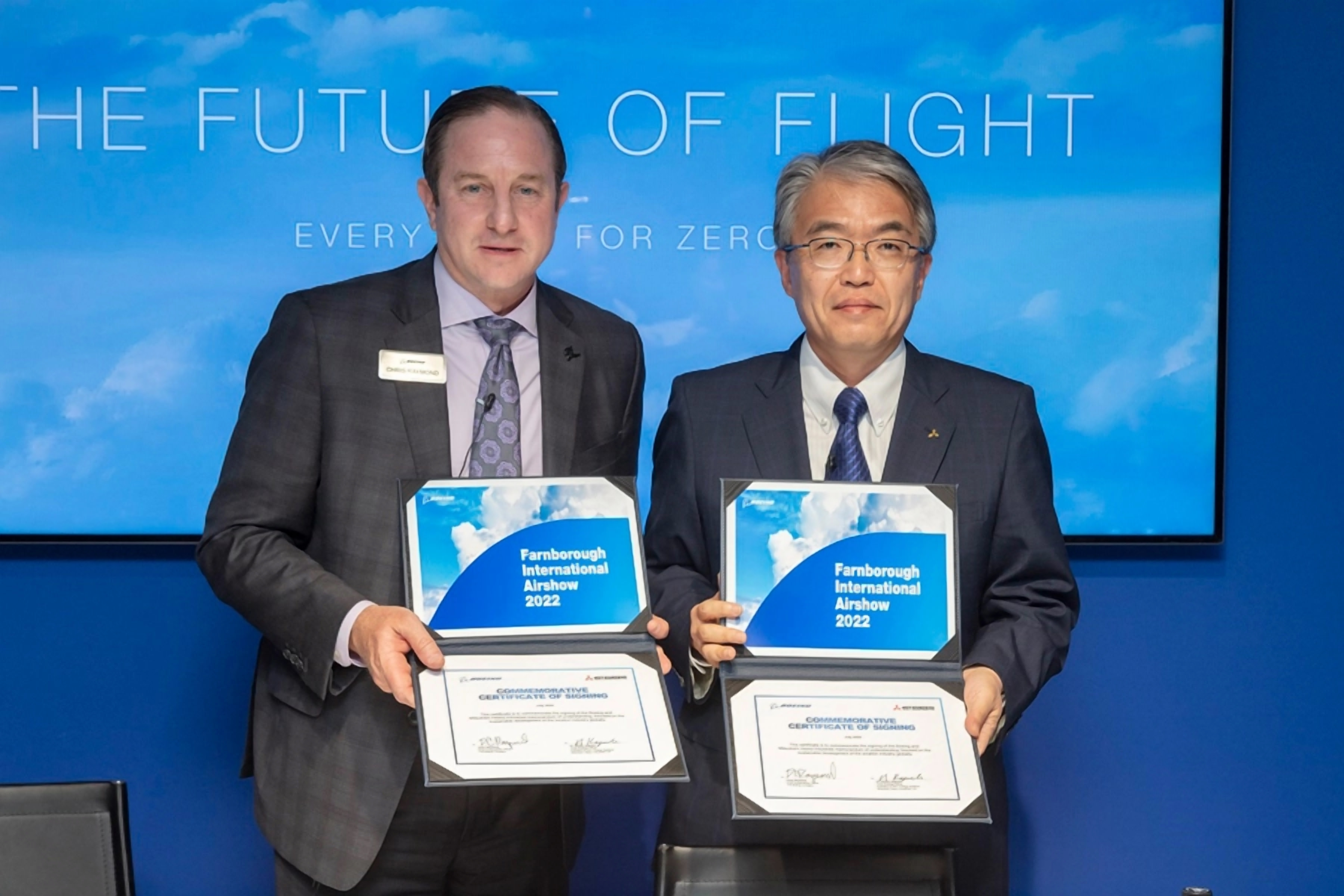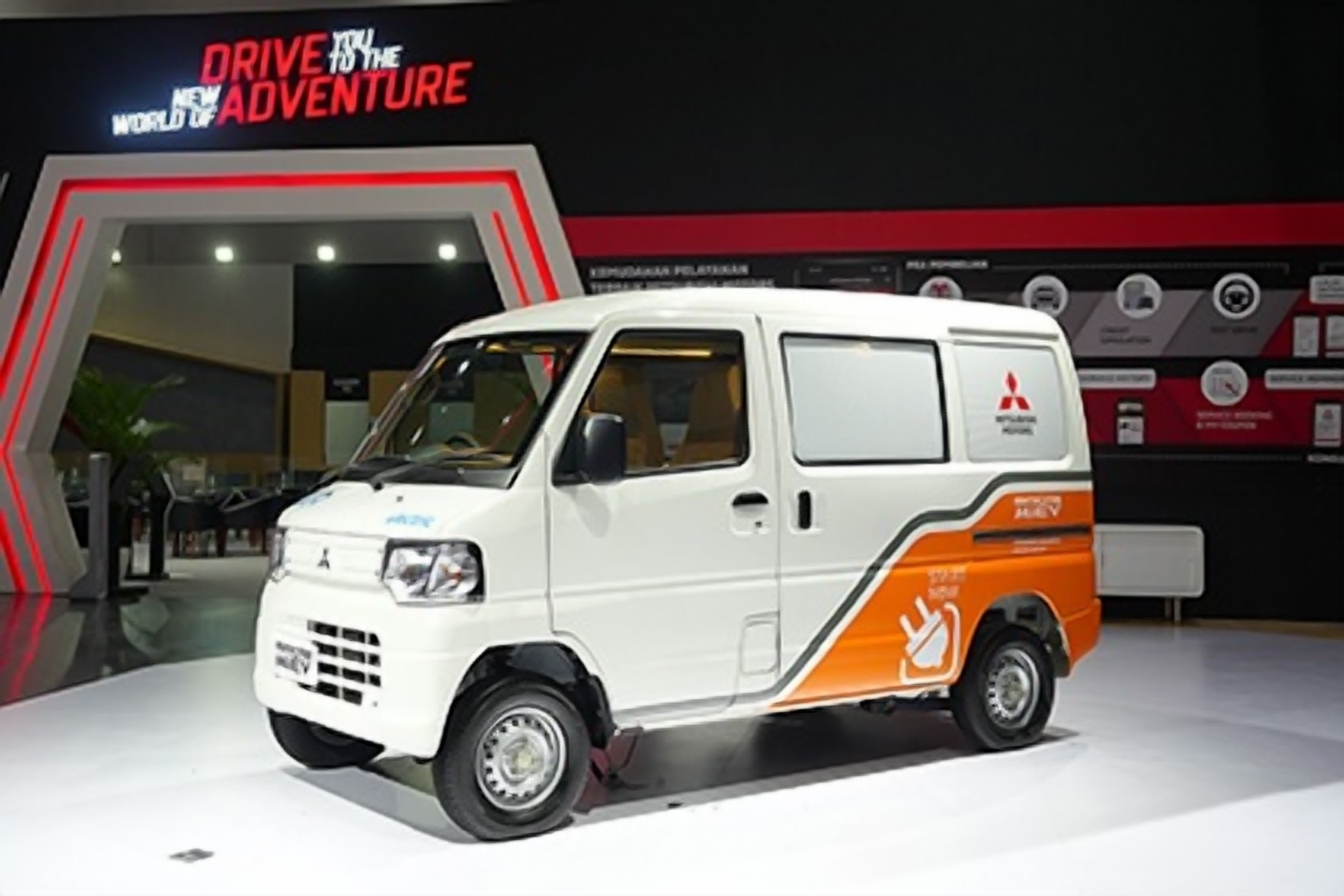Mitsubishi Heavy Industries & Boeing Collaborate for Innovation
Mitsubishi Heavy Industries Ltd

Mitsubishi Heavy Industries, Ltd. and Boeing have announced that they will collaborate on attaining the world's ambitious climate goals.
The memorandum of understanding (MOU) aims to collaboratively explore sustainable technologies, such as hydrogen, electrification, sustainable materials, zero climate impact propulsion technologies, and innovative aircraft design concepts, as well as the commercialisation of sustainable aviation fuels (SAF).
MHI and Boeing will investigate new feedstocks and methods for manufacturing SAF, including green hydrogen and carbon capture.
Dr. Hitoshi Kaguchi, Chief Strategy Officer and Head of Energy Systems at MHI said:
"Realising a carbon neutral society is essential for the future of our planet. We believe that, as a technology leader with a proven track record in the field of decarbonisation, it is MHI’s responsibility to be a leader in the fight against climate change. Through our group products, technologies, and services that help reduce CO2 emissions, and in collaboration with partners around the world, MHI Group will contribute to achieving “Net Zero” emissions for society. We are very proud to partner with Boeing, a leading global aerospace company, and we firmly believe that the partnership will make a significant contribution to advancing sustainable aviation."
MHI, one of the most diverse industrial conglomerates in the world, has been a pioneer in creating technology to realise a carbon-neutral society and create a sustainable aviation sector.
In addition, MHI has just joined "ACT FOR SKY," a Japanese nonprofit group focused on the commercialisation, promotion, and extension of domestically made SAF.
The organisation intends to educate citizens and businesses on the significance of SAF and the objectives of carbon neutrality and building a circular economy.
Chris Raymond, Chief Sustainability Officer at Boeing, said:
"To ensure the benefits of aerospace remain available for generations to come, we must bring innovative minds together for maximum progress toward the industry’s bold climate change goals. MHI is a leader in developing innovative, sustainable technologies with a strong commitment to reducing greenhouse gas emissions. We are honoured to partner with them and are united in our ambition to develop a sustainable future of flight.”
MHI announced "MISSION NET ZERO" in 2017 and established ambitious goals to achieve carbon neutrality in its operations and throughout its whole value chain by 2040. As an interim measure, MHI aims to halve its carbon emissions by 2030.
Boeing developed various agreements in 2021 to drive the shift to renewable energy, including with SkyNRG, Alaska Airlines, Etihad Airways, NASA, Rolls-Royce, and United Airlines, among others. In addition to joining the First Movers Coalition, the company partnered with industry leaders to speed the development of new technologies that cut emissions.
In addition, Boeing continues to make progress through its joint venture, Wisk, which is working to bring the first all-electric, self-flying air taxi to market in the United States, thereby aiding in decarbonising transportation and creating new business opportunities centred on urban air mobility.
Boeing, a global leader in the aerospace industry, designs, manufactures, and services commercial aircraft, defence goods, and space systems for customers in more than 150 countries.
As a leading U.S. exporter, the company utilises the skills of its global supplier base to promote economic opportunity, sustainability, and community benefit.
The diverse workforce at Boeing is committed to innovating for the future, leading with sustainability, and developing a company culture based on its fundamental values of safety, quality, and integrity.
Source: Mitsubishi Heavy Industries



